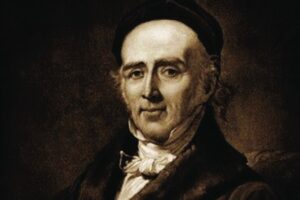
The Organon – Aphorism 201-210
§ 201 Fifth Edition It is evident that man’s vital force, when encumbered with a chronic disease which it is unable to overcome by its own powers, adopts the plan […]

The Organon – Aphorism 221-230
§ 221 If, however, insanity or mania (caused by fright, vexation, the abuse of spirituous liquors, etc.) have suddenly broken out as an acute disease in the patient’s ordinary calm […]

The Organon – Aphorism 11-20
§ 11 Fifth Edition When a person falls ill, it is only this spiritual, self acting (automatic) vital force, everywhere present in his organism, that is primarily deranged by the […]

The Organon – Aphorism 191-200
§ 191 This is confirmed in the most unambiguous manner by experience, which shows in all cases that every powerful internal medicine immediately after its ingestion causes important changes in […]

The Organon – Aphorism 181-190
§ 181 Let is not be objected that the accessory phenomena and new symptoms of this disease that now appear should be laid to the account of the medicament just […]

The Organon – Aphorism 171-180
§ 171 Fifth Edition In non-venereal chronic disease, those, therefore, that arise from psora, we often require, in order to effect a cure, to give several antipsoric remedies in succession, […]

The Organon – Aphorism 91-100
§ 91 The symptoms and feelings of the patient during a previous course of medicine do not furnish the pure picture of the disease; but on the other hand, those […]

The Organon – Aphorism 231-240
§ 231 The intermittent disease deserve a special consideration, as well those that recur at certain periods – like the great number of intermittent fevers, and the apparently non-febrile affections […]

The Organon – Aphorism 241-250
§ 241 Epidemics of intermittent fever, in situations where none are endemic, are of the nature of chronic diseases, composed of single acute paroxysms; each single epidemic is of a […]






